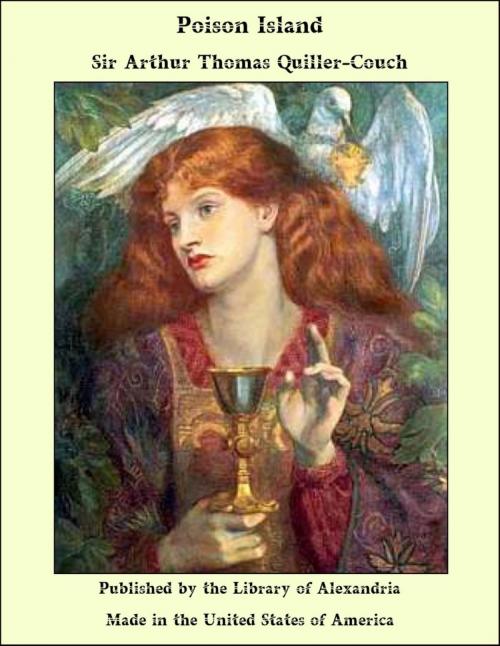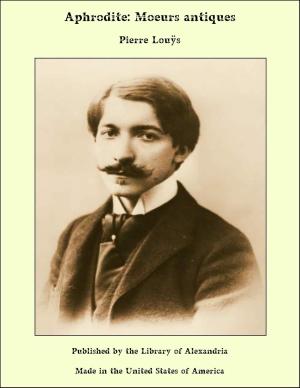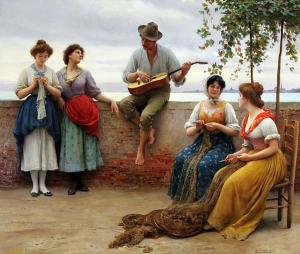| Author: | Sir Arthur Thomas Quiller-Couch | ISBN: | 9781465594167 |
| Publisher: | Library of Alexandria | Publication: | March 8, 2015 |
| Imprint: | Language: | English |
| Author: | Sir Arthur Thomas Quiller-Couch |
| ISBN: | 9781465594167 |
| Publisher: | Library of Alexandria |
| Publication: | March 8, 2015 |
| Imprint: | |
| Language: | English |
It was in the dusk of a July evening of the year 1813 (July 27, to be precise) that on my way back from the mail-coach office, Falmouth, to Mr. Stimcoe's Academy for the Sons of Gentlemen, No. 7, Delamere Terrace, I first met Captain Coffin as he came, drunk and cursing, up the Market Strand, with a rabble of children at his heels. I have reason to remember the date and hour of this encounter, not only for its remarkable consequences, but because it befell on the very day and within an hour or two of my matriculation at Stimcoe's. That afternoon I had arrived at Falmouth by Royal Mail, in charge of Miss Plinlimmon, my father's housekeeper; and now but ten minutes ago I had seen off that excellent lady and waved farewell to her—not without a sinking of the heart—on her return journey to Minden Cottage, which was my home. My name is Harry Brooks, and my age on this remembered evening was fourteen and something over. My father, Major James Brooks, late of the 4th (King's Own) Regiment, had married twice, and at the time of his retirement from active service was for the second time a widower. Blindness—contracted by exposure and long marches over the snows of Galicia—had put an end to a career by no means undistinguished. In his last fight, at Corunna, he had not only earned a mention in despatches from his brigadier-general, Lord William Bentinck, but by his alertness in handling his half-regiment at a critical moment, and refusing its right to an outflanking line of French, had been privileged to win almost the last word of praise uttered by his idolized commander. My father heard, and faced about, but his eyes were already failing him; they missed the friendly smile with which Sir John Moore turned, and cantered off along the brigade, to encourage the 50th and 42nd regiments, and to receive, a few minutes later, the fatal cannon-shot. Every one has heard what miseries the returning transports endured in the bitter gale of January, 1809. The Londonderry, in which my father sailed, did indeed escape wreck, but at the cost of a week's beating about the mouth of the Channel. He was, by rights, an invalid, having taken a wound in the kneecap from a spent bullet, one of the last fired in the battle; but in the common peril he bore a hand with the best. For three days and two nights he never shifted his clothing, which the gale alternately soaked and froze. It was frozen stiff as a board when the Londonderry made the entrance of Plymouth Sound; and he was borne ashore in a rheumatic fever. From this, and from his wound, the doctors restored him at length, but meanwhile his eyesight had perished.
It was in the dusk of a July evening of the year 1813 (July 27, to be precise) that on my way back from the mail-coach office, Falmouth, to Mr. Stimcoe's Academy for the Sons of Gentlemen, No. 7, Delamere Terrace, I first met Captain Coffin as he came, drunk and cursing, up the Market Strand, with a rabble of children at his heels. I have reason to remember the date and hour of this encounter, not only for its remarkable consequences, but because it befell on the very day and within an hour or two of my matriculation at Stimcoe's. That afternoon I had arrived at Falmouth by Royal Mail, in charge of Miss Plinlimmon, my father's housekeeper; and now but ten minutes ago I had seen off that excellent lady and waved farewell to her—not without a sinking of the heart—on her return journey to Minden Cottage, which was my home. My name is Harry Brooks, and my age on this remembered evening was fourteen and something over. My father, Major James Brooks, late of the 4th (King's Own) Regiment, had married twice, and at the time of his retirement from active service was for the second time a widower. Blindness—contracted by exposure and long marches over the snows of Galicia—had put an end to a career by no means undistinguished. In his last fight, at Corunna, he had not only earned a mention in despatches from his brigadier-general, Lord William Bentinck, but by his alertness in handling his half-regiment at a critical moment, and refusing its right to an outflanking line of French, had been privileged to win almost the last word of praise uttered by his idolized commander. My father heard, and faced about, but his eyes were already failing him; they missed the friendly smile with which Sir John Moore turned, and cantered off along the brigade, to encourage the 50th and 42nd regiments, and to receive, a few minutes later, the fatal cannon-shot. Every one has heard what miseries the returning transports endured in the bitter gale of January, 1809. The Londonderry, in which my father sailed, did indeed escape wreck, but at the cost of a week's beating about the mouth of the Channel. He was, by rights, an invalid, having taken a wound in the kneecap from a spent bullet, one of the last fired in the battle; but in the common peril he bore a hand with the best. For three days and two nights he never shifted his clothing, which the gale alternately soaked and froze. It was frozen stiff as a board when the Londonderry made the entrance of Plymouth Sound; and he was borne ashore in a rheumatic fever. From this, and from his wound, the doctors restored him at length, but meanwhile his eyesight had perished.















